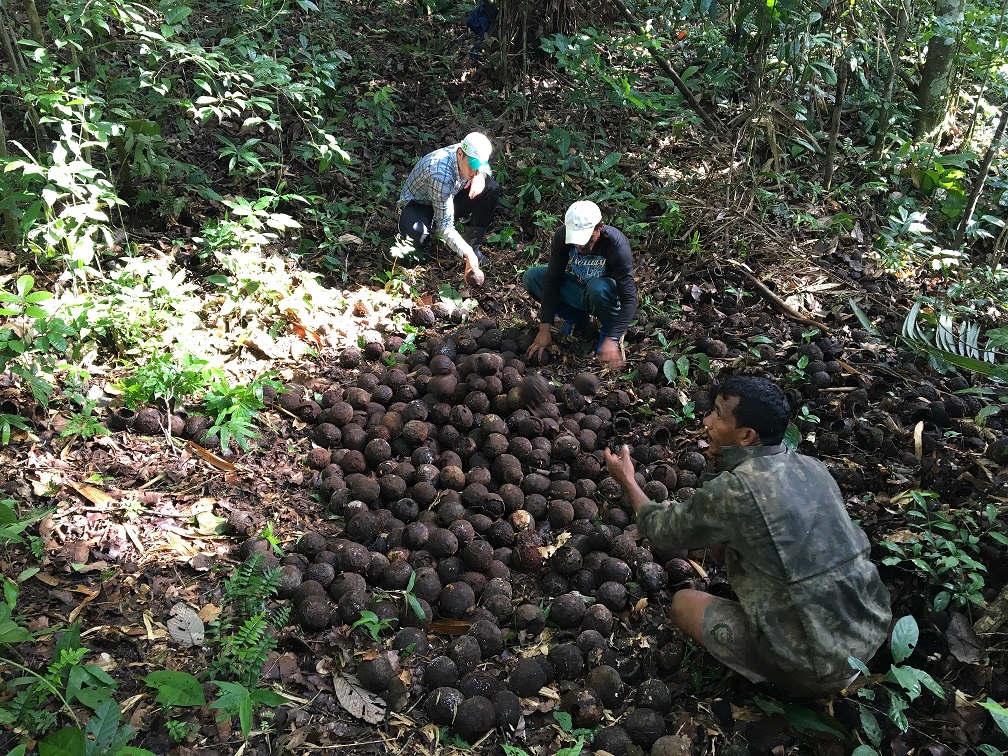::cck::439::/cck::
::introtext::
Created in 2002 in Acre, the Extractive Reserve (Resex) of Cazumbá-Iracema occupies almost 40% of the territory of Sena Madureira. The area is home to 350 families who have fought and are struggling to conserve the forest and their chestnut trees, from which they derive their livelihood.
Four years ago, through the project Participatory Biodiversity Monitoring, carried out in partnership with the ICMBio (Chico Mendes Institute of Biodiversity Conservation), IPÊ came to further support the on-site conservation process. To this end, it develops training of monitors and workshops for the implementation and improvement of protocols for monitoring chestnuts. Check out VIDEO
With the project, the communities are the protagonist of your lives and create their own futures. The residents and extractivists collect data and know the time and the right way to collect the nuts, so that extractivism is carried out in a sustainable way.
This practice was the result of an integration between the traditional knowledge of the populations living in Resex and the learning with the courses of the project. Young people and adults are engaged to maintain the forest and chestnut trees.
“Our greatest legacy for Resex was to provide the exchange of knowledge and to bring even more information. The courses on chestnut tree management and how to apply the protocol to carry out monitoring were very important for the process of engaging people in the conservation of chestnuts. With information, they have greater care, they know the right time to cut and what to cut in the chestnuts, ensuring that the resource stays in this protcted area for longer”, says Ilnaiara Gonçalves de Sousa, IPÊ’s field researcher. The Participatory Biodiversity Monitoring is supported by USAID, Gordon and Betty Moore Foundation and ARPA.
::/introtext::
::fulltext::::/fulltext::
::cck::439::/cck::


